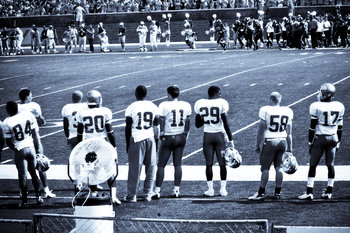
Basics
A resignation letter is a document that will be carefully retained by your employer because it has legal implications. As such, it is minimized to state that you are leaving and indicate that you wish to do this on good terms. There is no need to explain your real reasons for leaving or to describe your next opportunity. This can be done politely and verbally in conversation with your manager if you feel that you should explain things.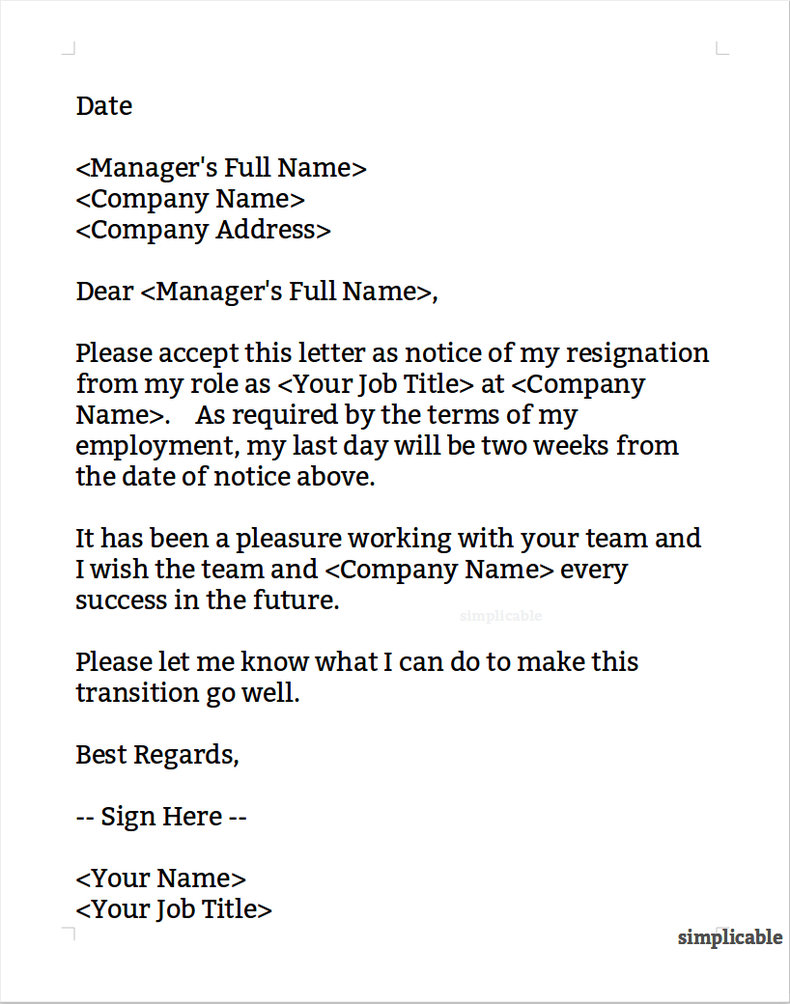
Departure Date
It is important to align your departure date to the terms of your employment and to state exactly when you are leaving in your resignation letter. This is evidence that you provided the notice required. Be aware, that if you give greater notice than that required, your employer may ask you to leave earlier. In rare cases, an employer wants you to leave immediately upon resignation and will typically need to pay you for your notice period. If you absolutely need to leave before the end of your notice period simply state the day you are leaving and get your letter in as soon as possible. Failure to provide sufficient notice may be viewed negatively by your employer and affect your future dealings with the employer such as requests for a reference.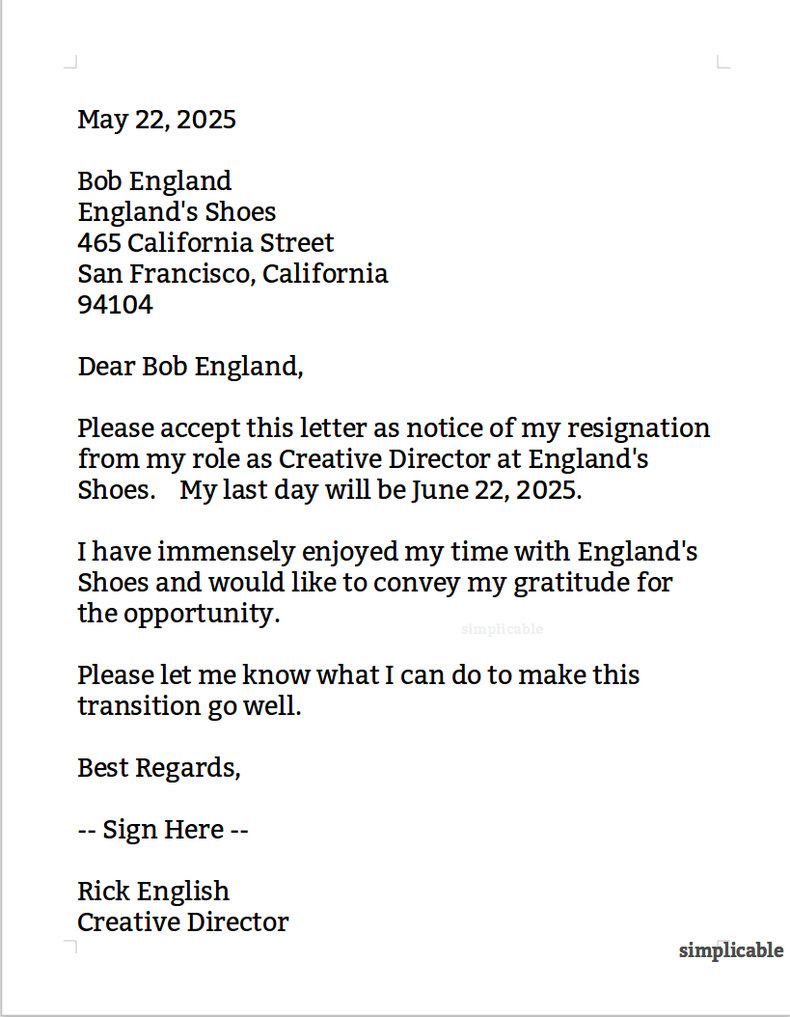
Effective Immediately
If you are leaving on extremely bad terms with your employer or need to depart without any notice for some reason it is common to use the term effective immediately as a departure date. As always, keep the letter positive and matter of fact. It is customary to offer the employer to contact you with questions if you are leaving without a notice period.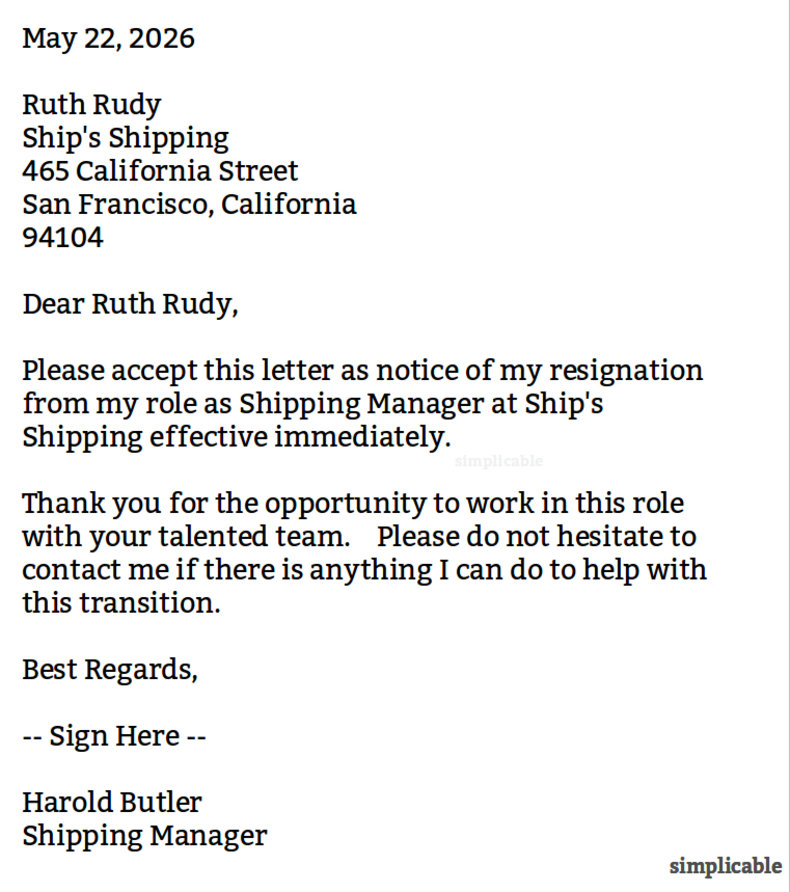
Professional Reasons
It is not necessary to state your reasons for leaving in your resignation letter. This can be mentioned verbally in conversation with your manager and/or team. However, some people strongly want to convey their reasons. The following is an example of how to do this.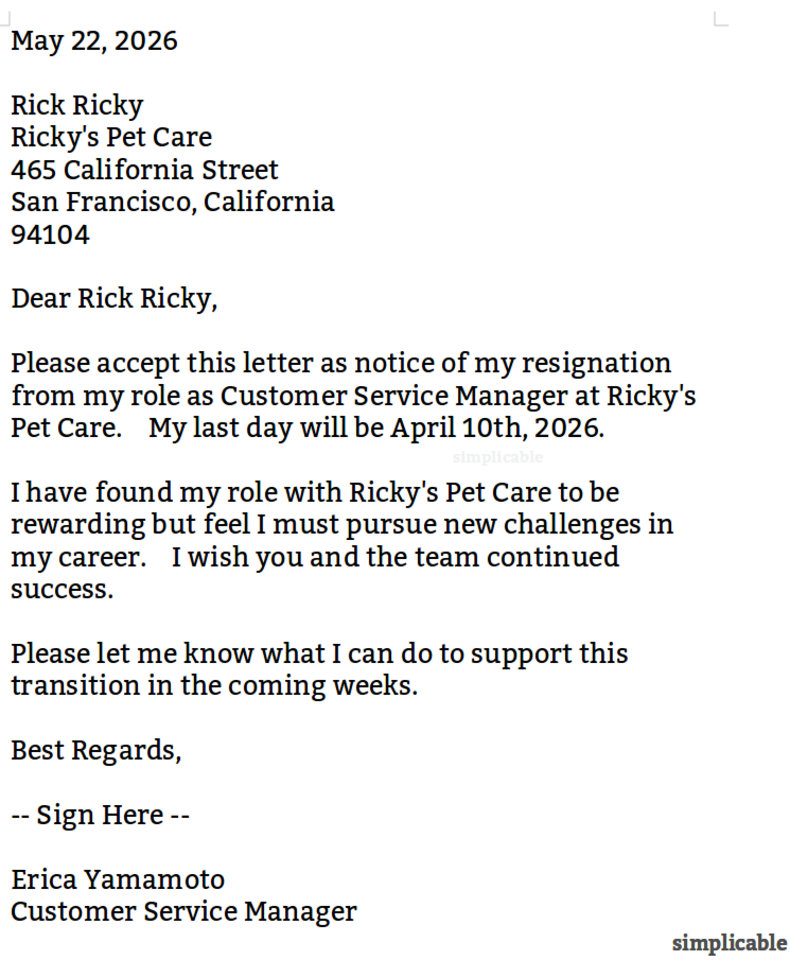
Personal Reasons
If you feel a need to inform your employer that you are leaving for personal reasons, it is best not to give any details as this can be done verbally. A high level reason such as "family reasons", "health reasons" or "personal reasons" is good enough.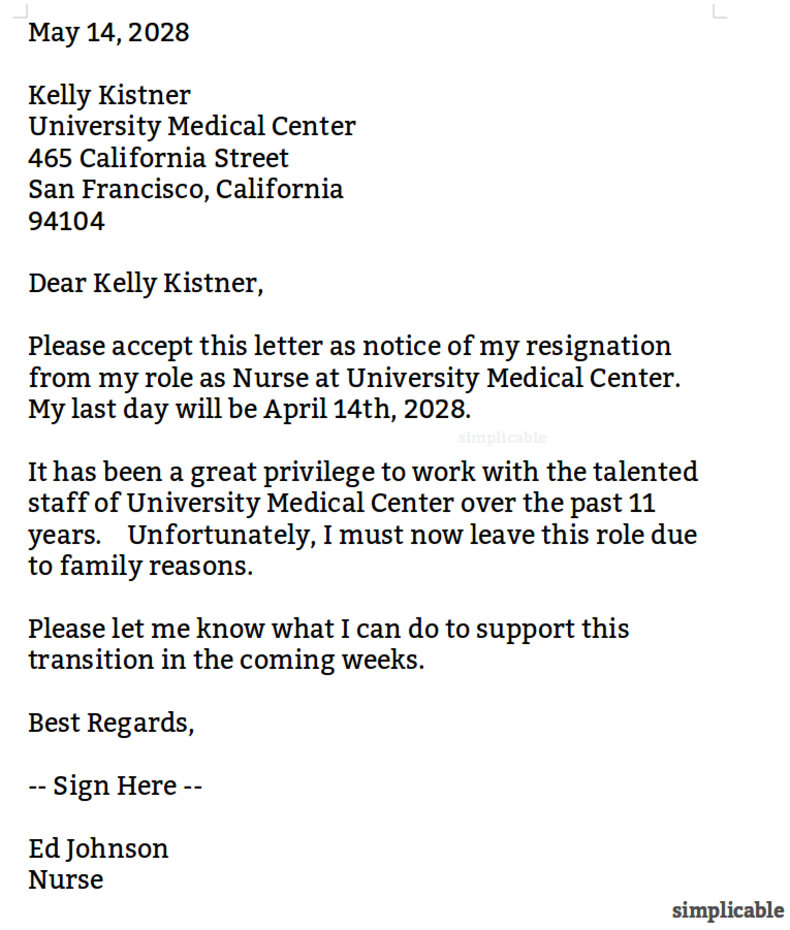
Minimal
It is possible to minimize a resignation letter by simply stating that you are leaving and giving a date.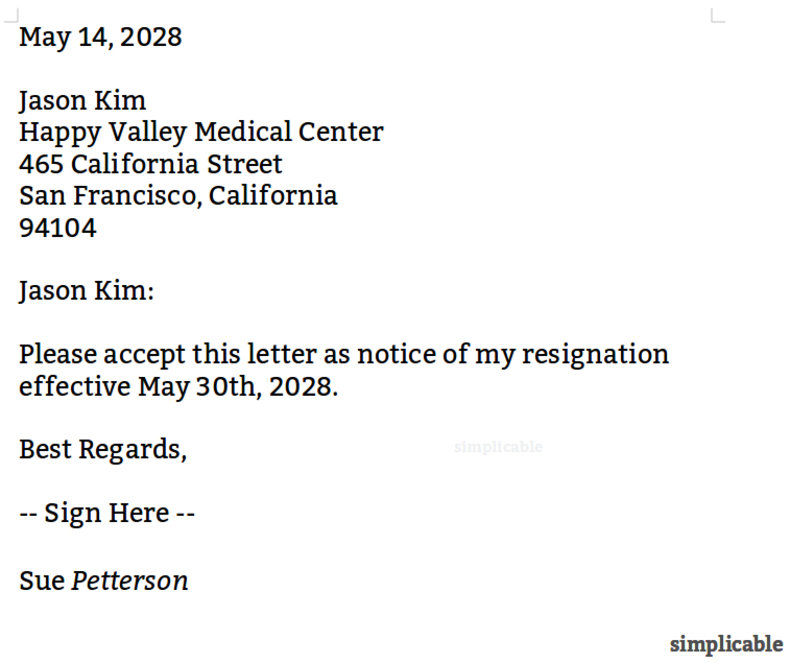
| Overview: Resignation Letter | ||
Type | ||
Definition | A formal communication of an employee's plan to leave a job. | |
Related Concepts | ||























